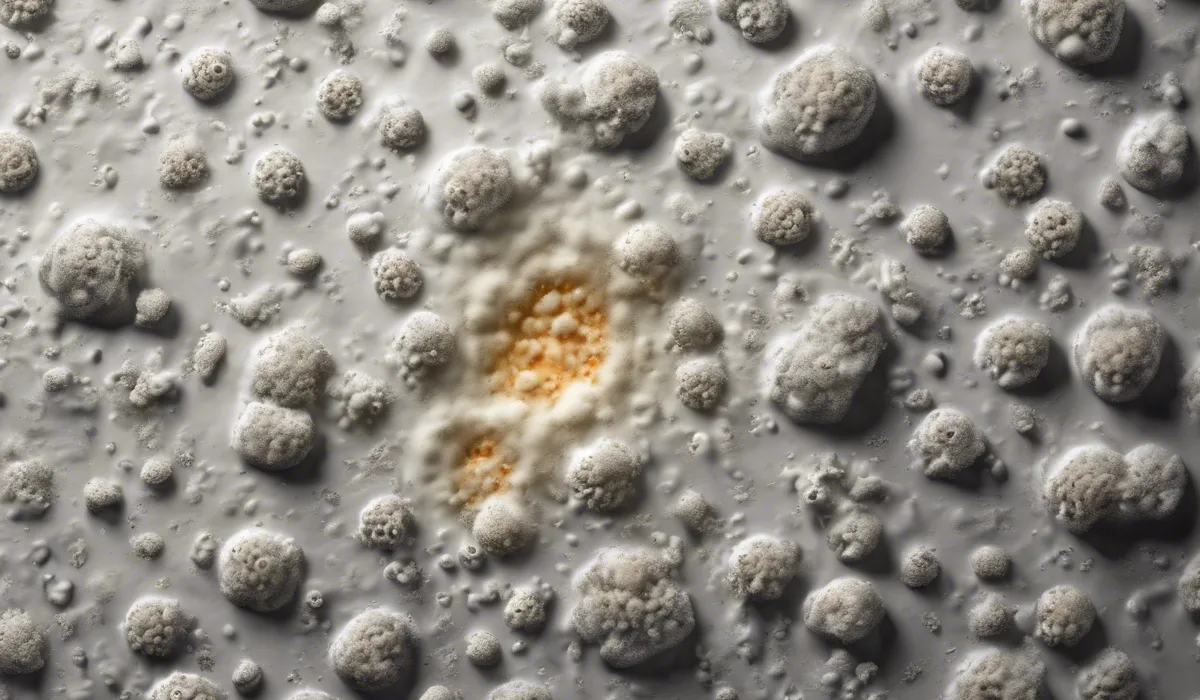Not everyone is allergic to mold. While mold exposure can cause allergic reactions in some individuals, others may not experience any symptoms. Mold allergies vary widely among people, depending on their immune system sensitivity. Only a medical test can confirm a mold allergy.
Understanding Mold Allergies

What is Mold?
Mold is a type of fungus that grows in damp environments. It can be found both indoors and outdoors, thriving in moist areas like bathrooms, kitchens, basements, and around leaks in roofs or windows.
Mold reproduces through tiny spores that travel through the air, and it comes in various colors and textures.
Understanding Mold Allergies
A mold allergy occurs when a person’s immune system overreacts to mold spores. Not everyone is allergic to mold, but those who are may experience symptoms similar to other allergies.
The body’s immune system sees mold spores as invaders and releases histamine, which causes allergy symptoms.
Common Allergenic Molds
Some molds are more likely to cause allergic reactions than others. The most common culprits include Alternaria, Aspergillus, Cladosporium, and Penicillium.
These types of mold can be found both indoors and outdoors, and they vary in appearance and habitat.
Immune Response to Mold
When a person with a mold allergy comes into contact with mold spores, their immune system identifies these spores as a threat.
It responds by creating antibodies and triggering the release of chemicals like histamine. This immune response leads to the symptoms that are characteristic of an allergic reaction.
Symptoms and Diagnosis of Mold Allergies

Common Symptoms
Individuals with mold allergies may experience sneezing, runny or stuffy nose, itchy throat or eyes, coughing, and wheezing.
In some cases, skin rashes or hives can occur. Symptoms can vary from mild to severe and may be mistaken for a common cold or other respiratory issues.
Differentiating from Other Conditions
Mold allergies can be hard to distinguish from other respiratory conditions. Unlike a cold, which usually resolves within a week or two, mold allergy symptoms persist as long as the exposure continues.
Furthermore, mold allergies can trigger asthma attacks in individuals with asthma.
Testing for Mold Allergies
To diagnose a mold allergy, a doctor may perform skin prick tests or blood tests. These tests can help identify specific mold spores that a person is allergic to, aiding in creating an effective treatment plan.
Risk Factors
People with a family history of allergies or asthma, those living in damp or mold-prone environments, or those working in occupations with high mold exposure are at a higher risk of developing mold allergies.
Keeping environments dry and well-ventilated can help reduce the risk.
Management and Prevention of Mold Allergies

Reducing Mold Exposure
To prevent mold allergies, it is crucial to reduce mold growth in your living or work environment.
Use dehumidifiers to keep humidity levels low, fix leaks promptly, and clean moldy surfaces with mold-killing products. Good ventilation is also important, particularly in areas where steam or moisture builds up.
Treatment Options
For those already suffering from mold allergies, various treatments can help manage symptoms.
These include nasal sprays, antihistamines, and decongestants. In some cases, allergy shots (immunotherapy) may be recommended to reduce the severity of the allergic reaction over time.
Medication for Mold Allergies
Antihistamines can help relieve sneezing and itching, while nasal corticosteroids are effective in treating inflammation.
Decongestants can provide temporary relief from nasal stuffiness. Non-sedating antihistamines are preferred for daytime use as they are less likely to cause drowsiness.
Seeking Medical Advice
If you suspect you have a mold allergy, it is important to see a doctor for an accurate diagnosis and treatment plan.
If symptoms are severe or if over-the-counter medications do not provide relief, a healthcare professional can offer additional support or treatment options.
FAQs About Mold Allergies
Is everyone allergic to mold?
No, not everyone is allergic to mold; susceptibility to mold allergies varies among individuals.
What causes a mold allergy?
A mold allergy is caused by an overreaction of the immune system to mold spores.
How can I tell if I am allergic to mold?
A mold allergy can be confirmed through medical tests, such as skin prick tests or blood tests.
Do all types of mold cause allergies?
Not all mold types cause allergies, as some individuals may react to certain molds while others do not.
Can someone develop a mold allergy over time?
Yes, it is possible for individuals to develop a mold allergy over time due to repeated exposure.
Final Thoughts
Mold allergies are not universal; they affect individuals differently based on the sensitivity of their immune systems.
Some people may experience allergic reactions upon exposure to mold, while others remain symptom-free. The presence of a mold allergy can only be determined through a medical test.
